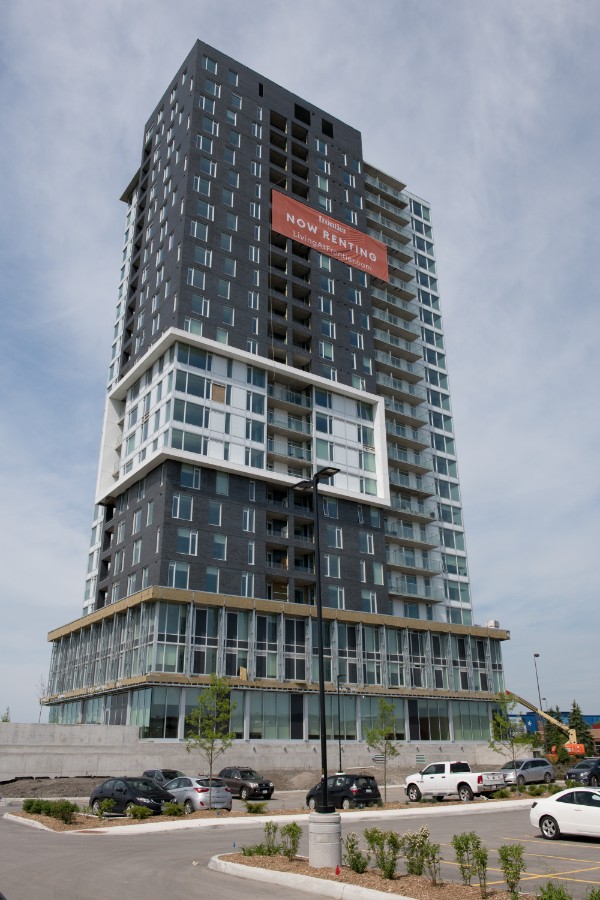Despite a rise in transit-oriented development, Ottawa remains a car city.
So while the CEO of Killam Apartment REIT, RioCan’s partner in a new multi-tower apartment complex being built near Gloucester’s Blair LRT station, says he sees a bright future for the project, he’s not ready to forecast a massive wave of similar developments just yet.
“The pickup will depend on where the car goes for the average Ottawa citizen,” says Philip Fraser, whose company owns a 50 per cent stake in the Frontier development.
(Sponsored)

Ottawa businesses critically important to ending youth homelessness across the city
Local businesses joining United Way East Ontario’s effort to prevent and end youth homelessness not only helps build a stronger, safer, and healthier community, but gives a boost to Ottawa’s

Ottawa businesses critically important to ending youth homelessness across the city
Local businesses joining United Way East Ontario’s effort to prevent and end youth homelessness not only helps build a stronger, safer, and healthier community, but gives a boost to Ottawa’s
“It’s not like Toronto, where you do want to ditch your car because it’s so hard to drive around that city. This city is not much ahead of Calgary or Edmonton in terms of (residents) giving up their cars. Those cities, they’re not giving them up any time soon.”
Halifax-based Killam already had a significant presence in the capital even before the 23-storey, 228-unit first phase of the Gloucester project opened in June.

Last fall, the REIT bought a new 60-suite apartment building at the corner of Greenbank Road and Craig Henry Drive for $20.7 million, boosting the number of units it owns in Ottawa to about 1,300.
Fraser says he expects Killam to continue expanding its footprint in the capital region, praising its stable, government-driven economy and steady influx of new residents that recently pushed Ottawa past the one-million population milestone.
“In this business, population growth and job growth are the two best ingredients for the multi-family (apartment) business,” he explains.
Frontier is part of a new generation of apartment buildings that feature amenities such as fitness centres, meeting rooms and even small guest suites for visitors – offerings that were unheard of just a couple of decades ago.
Noting the industry is in a state of “constant evolution,” Fraser says builders are simply responding to market demands. Today’s tenants, he says, want to live close to transit and have access to “collaboration rooms” where they can open their laptops and relax or do a bit of work in a social environment.
When Killam started building apartments a decade ago, theatre rooms with tiered seating were all the rage in upscale developments, Fraser recalls. Netflix and other TV and movie streaming platforms quickly put an end to that trend.
“That lasted about three or four years. You don’t do that anymore,” he says. “That whole amenity package will continue to evolve. This is what it looks like today.”
The first phase of Frontier is about 60 per cent leased so far, Fraser says, adding that’s a “very good” ratio for a newly opened building. He estimates about 70 per cent of its tenants are “young, urban” residents, with the rest empty-nesters who have sold their homes and decided to downsize.
Phase two of Frontier is already under construction, with at least two more towers and possibly a third coming down the road. Fraser says Killam might look downtown for its next property.
“It’s just a good market, period,” he says of Ottawa.




